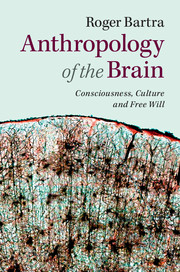20 - External symbols
Published online by Cambridge University Press: 05 June 2014
Summary
Johan Huizinga was convinced that human culture emerged from play. In his book Homo ludens he most emphatically stresses that he is not looking at play in culture, but rather is analyzing culture as play. This is the central idea behind his study of the ludic competitions in law, war, in magic and sacred powers, in poetry, philosophy, and in art. He is especially interested in the primitive and ancient forms in which culture comes into being as play, but he also reflects on the ludic dimensions of modern culture. Huizinga can be reproached for not including a chapter on comedy, farce, and clowns. There are very few references to the theater in his work; and he does not say much about laughter, which often, though not always, accompanies play. We could say that the missing chapter had already been written by Henri Bergson, but from a very different point of view. His book on laughter, based mainly on a reflection of comedy, is also a study of the manifestations of play in the theater. For Bergson, that which is comic is an aspect of a person that makes him or her resemble something that moves rigidly, dependent on a determinism that is responsible for everything moving as if it were manipulated by wires and strings; like puppets that appear to be acting freely. However, unlike Huizinga, Bergson believes that everything that is serious in life originates in liberty, whereas play in comedy is submerged in a mechanization of life, treating life as a repetition mechanism with reducible effects and interchangeable parts. For Huizinga, play, in itself, is not comic, even though he accepts that in a broad sense comic mimicry can be considered a game. In a curious book on the subject, the economist Jean Fourastié has said that laughter is a break from the determinism that constricts and limits human actions. Humor can break the determinisms and open new perspectives to the human spirit.
- Type
- Chapter
- Information
- Anthropology of the BrainConsciousness, Culture, and Free Will, pp. 158 - 169Publisher: Cambridge University PressPrint publication year: 2014



